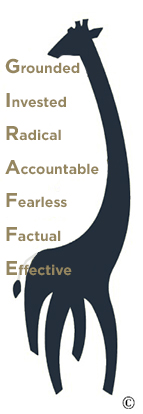Written By Victoria Trabosh, CEC
Situation: “I’m coaching a leader whose people are asking for answers because everything is uncertain. Normally my client provides the strategies and support that the team needs, but the pace of change is happening so fast that the leader is no longer able to help his people navigate the uncertainty, and that is making him question his value and leadership ability. What can I do as a coach to help my client regain confidence in his role and his leadership?”
Pre-pandemic, many leaders had set- tled into their role of how to handle leadership issues and were comfort able with their personal style. The pandemic changed the questions and the certainty of the answers.
Many leaders recently realized so-called soft skills, or people-centered skills, were suddenly primary in their ability to lead well: authenticity, emotional empathy, the democ- ratization of leadership, inclusion, the need for integration of the whole person into the work, and genuinely caring for employees. Many leaders had not focused on those people-centered skills and felt inadequate to handle the uncertainty, questions, expecta- tions, and feedback they received.
With the changes experienced by all, it is time for coaches to step up to a new level of coaching the executive. In some cases, that may mean that as a coach, you lead the conversation to bring up the issues of people-centered skills that your client utilizes, under-utilizes, or ignores.
We are here to coach the gap, from where leaders are to where they want to go. Before you let your client believe they have failed and are lost, acknowledge where they are and help them fail forward. Guide them to learn the explicit and personal lessons of what no longer works, look at leaders who have made it and thrived with their team through the pandemic, and chose one or two new behaviors to embrace to improve their leadership and become confident once again.
This answer is not a prescriptive response to tell you exactly what to do. Consider it a call as a coach to review with your client how they have led previously and what is no longer effective. Suppose you’ve used a tool like a 360 review. What information is available that may show awareness of a skills gap but not competence in dealing with employees from a people-centered skills perspective?
As coaches, we can play an integral role in the transformation of leaders as they shift their leadership competencies that previous- ly may have been ignored or minimized and keep the best skills that work regardless of the situation. Remind your client that as the challenges change, so must their leadership skills. Within that mindset, transformation within leaders is probable and will be some of the most explicit and profound lessons they have ever learned. I challenge you to join them in this transformation.
Read the whole article HERE
Published in, and reproduced with permission from, choice, the magazine of professional coaching www.choice-online.com
Tags: client, Leadership, sticky situation, Uncertainty, Victoria Trabosh






